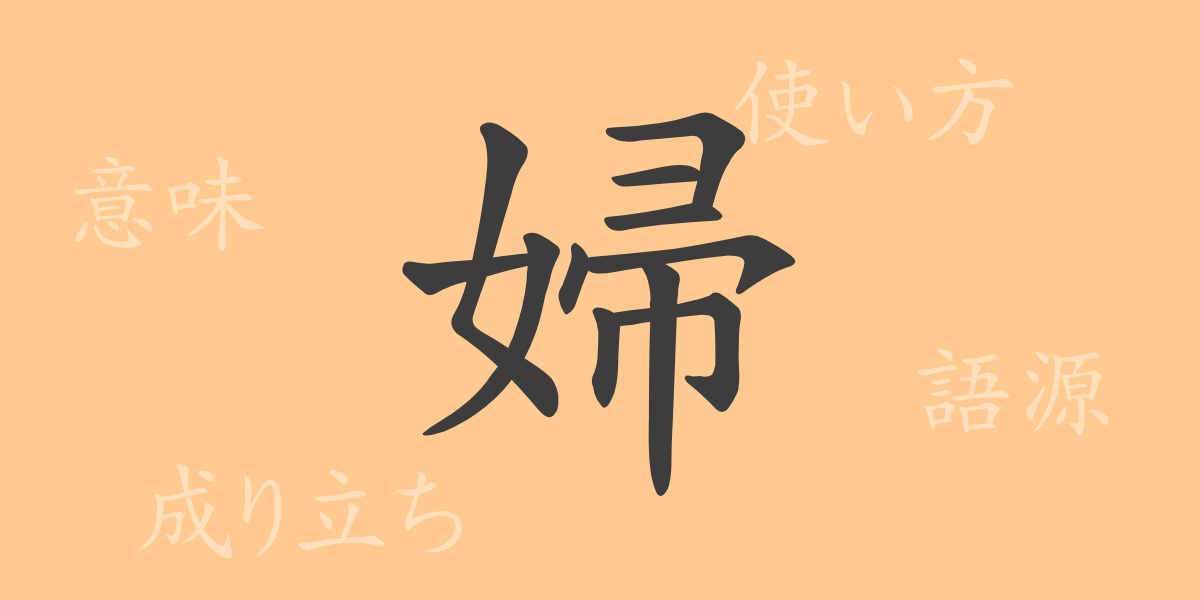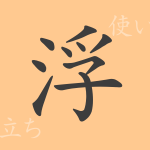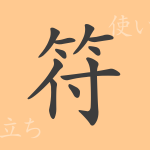The meaning of a single kanji character is deeply rooted in its form and history. The commonly used Japanese kanji “婦” (fu) is no exception. In this article, we will explore the origins and modern usage of “婦” (fu), unraveling its rich meanings. Used in various words related to women, “婦” (fu) serves as a mirror reflecting culture and history. Let’s step into the world of “婦” (fu).
Origin of 婦 (fu)
The kanji “婦” (fu) has evolved from ancient Chinese pictograms. It originally began as a pictograph representing “a woman holding a cloth,” symbolizing the important household chores of weaving and the roles women played within the home. Over time, it transformed into a more abstract form, settling into the character “婦” (fu). This historical background reflects ancient views on women’s social status and cultural roles.
Meaning and Usage of 婦 (fu)
Generally, “婦” (fu) refers to a married woman or a woman who has entered into marriage. However, it also denotes the roles, status, and specific professions women undertake. For example, 看護婦 (kango-fu, nurse), 主婦 (shu-fu, housewife), and 夫人 (fu-jin, lady) are common usages. Additionally, it can be used respectfully to refer to older women. The usage of “婦” (fu) has evolved over time, often carrying broader meanings in modern contexts.
Reading, Stroke Count, and Radical of 婦 (fu)
The kanji “婦” (fu) has distinct readings and structure:
- Reading: On-yomi (音読み) is “フ” (fu), Kun-yomi (訓読み) is “よめ” (yome)
- Stroke count: 11 strokes in total
- Radical: 女部 (おんなへん, onnna-hen)
Idioms, Proverbs, and Phrases Using 婦 (fu)
There are numerous idioms, proverbs, and phrases that include “婦” (fu). Here are a few examples:
- 主婦 (しゅふ, shu-fu): Refers to a married woman who primarily manages the household and engages in housework.
- 夫婦 (ふうふ, fuu-fu): Refers to a pair of a man and a woman, especially a married couple.
- 看護婦 (かんごふ, kango-fu): Refers to a woman who works as a nurse in a hospital or clinic. Nowadays, the term “看護師 (かんごし, kango-shi)” is more commonly used.
- 良妻賢母 (りょうさいけんぼ, ryousai-kenbo): Means a good wife and wise mother, often used as an ideal image of a woman.
These words reflect the roles and expectations of women within Japanese culture and society.
Summary of 婦 (fu)
The kanji “婦” (fu) holds meanings beyond just a character, reflecting the roles, status, and culture of women in Japanese society. By tracing its origins to its modern-day usage, we can see how the position of women has evolved alongside societal changes. Additionally, idioms and expressions containing “婦” (fu) remain deeply rooted in our daily language, conveying culture and values through words. This knowledge and understanding from a single character highlight the profound depth of language.

























